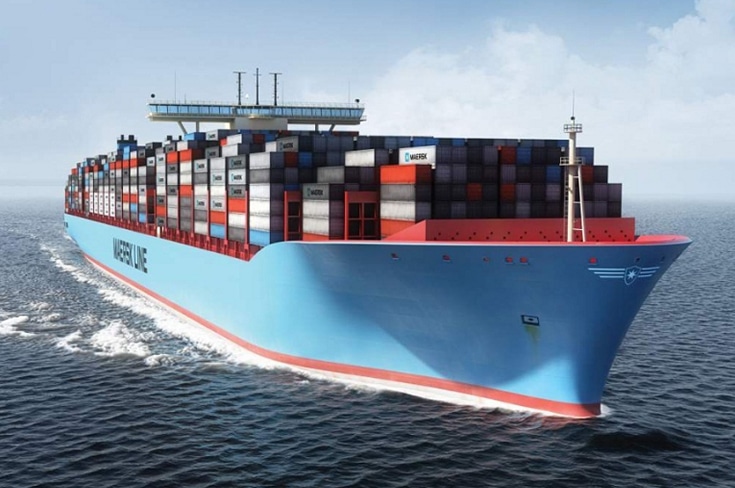
As the global logistics environment is ever-changing, businesses require reliable and cost-efficient transportation modes to ferry goods across borders smoothly. Ocean Freight Forwarding Services are among those that simplify the myriad variables affecting international shipping logistics. Ocean freight services provide cost-effective means of transporting large-scale cargo across oceans in a scalable manner. Rail freight transport services provide reliability in the inland area complementing maritime shipping for end-to-end logistics.
The Value of Ocean Freight Forwarding in Global Trade
Ocean freight forwarding services are extremely important for companies with facilitation requirements in coordinating international shipments. These services include logistics to arrange a cargo space booking, preparing the shipping documentation for the cargo space booking and melting over freight rates, customs clearance, etc. Thus, freight forwarders facilitate these processes and relieve burdens from corporations through professional oversight from origin to destination.
With forwarders supervising every intricate detail of international transport, delay times are lessened, reliability is increased, and businesses get a better grip on cost control. The flexibility offered to their customers is a benefit of forwarders’ access to a network of carriers ports and customs agents, as it serves the efficiency of their services. They also ensure that shipments conform to international regulations with minimum risk of fines or delays.
Ocean Freight Services as the Backbone of International Shipping
It is the backbone of global trade that ocean freight services set up such an enormous structure. Highly suitable for transporting large amounts of cargo-whether in full container load or less than container shipments-ocean freight services are well designed for the transit of cargo over long distances. Businesses thrive on this maritime web that connects major ports of the world, granting a reach to many markets for efficient distribution.
Ocean shipping method is also the cheapest mode for heavy and bulky goods, thus making it the preferred choice for the manufacturing, automotive, and retail industries. While transit times may lag behind those of air travel, the savings achieved here are enormous. In fact, service providers are constantly trying to improve their schedules, vessel designs, and sustainability measures due to an ever-increasing demand for faster and greener shipping solutions.
Integrating Rail Freight Transport for Greater Reach
In as much as ocean transport eases international movement, rail freight transport services then bridge the gap between the ports and inland destinations. Rail is specifically important for long-haul shipments across huge land masses where it serves as a faster and more reliable transport alternative when compared to road transport. Rail infrastructure can withstand heavy loads and operate timed service in a wide range of weather conditions.
Railway Services are often a key constituent of multimodal transport networks: they move goods from seaports or coastal freshwater ports to inland distribution centers, warehouses, and factories. They also link together and thus increase delivery times and less rely on truck fleets while also decompressing surface transport congestion and carbon footprint.
Environmentally Responsible Freight Solutions
In today’s environmentally conscious society, sustainability is no longer about choices. Ocean freight services and rail freight transport services have been acknowledged for their lower environmental impacts than other transport modes. Ships emit less CO₂ than airplanes or trucks per ton-mile, and rail systems are more efficient and less damaging to the environment than road transport.
Reliability and Flexibility in a Dynamic Market
Scalability and reliability are the foremost pillars in the present-day freight logistics systems. Ocean freight services are associated with regularly set schedules which allow shipping huge quantities of cargo within a singular voyage. Similarly, rail freight transport services also provide an inland delivery systematically, with enough quantity loads, and a reduced variability factor.
Such services can be modified to suit diverse customer demands, market dynamics, and seasonal peaks. Whether a business shipping on a high-frequency basis or transporting heavy bulks only once or occasionally, integrated ocean-rail logistics will give just the right place for greater flexibility in smart planning and optimized resource allocation.
Strategic Freight Choices for Long-Term Growth
Informed freight selections are pivotal to sustainable growth and operational success. Ocean freight forwarding services offer expertise in managing documentation, compliance, and scheduling. Companies that choose ocean freight services gain advantages in terms of vast global networks and cost savings. On the other hand, rail freight transport services incorporated into the supply chains fasten inland transit, provide reliability, and have green benefits.
Logistics partners with capabilities across all three areas can offer tailored solutions to specific needs of an industry and shipping requirements. This leads into smarter logistics operations, better inventory management, and stronger customer satisfaction.
Conclusion
Logistical excellence is no longer a luxury, but an obvious way for companies willing to thrive in the global marketplace. Ocean freight forwarding services, thus, give companies expert support and strategic oversight of international shipping operations. Ocean freight services would offer scalable and cost-effective solutions for sending goods across continents. Rail freight transport services now provide timely and secure inland delivery, thus completing the cycle of a well-coordinated logistics system. Together, they constitute the essence of modern freight strategies that sustain growth and viability on the global scale.

 简体中文
简体中文 Nederlands
Nederlands